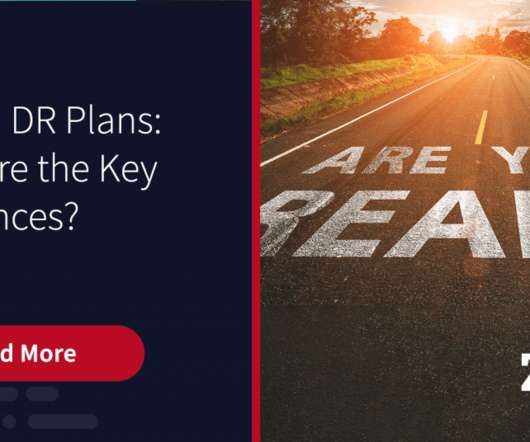Disaster Recovery Plan vs. Business Continuity Plan: Is There a Difference?
Diligent
FEBRUARY 23, 2021
But while definitions may diverge slightly, the general understanding is that a business continuity plan (BCP) is designed to ensure that your business can maintain its operations in the event of a disaster, whatever form that might take. A comprehensive BCP will: Identify the potential risks your business faces.











Let's personalize your content